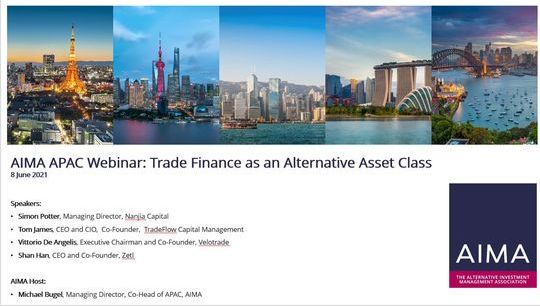Het Financieele Dagblad: Activist investors unlock value
By Jack Inglis, CEO, AIMA
Published: 26 April 2017

A Dutch version of this letter was originally published in Het Financieele Dagblad on April 25, 2017.
Sir,
I write on behalf of The Alternative Investment Management Association, which represents 1,850 investment firms that collectively manage more than $1.8 trillion in assets in 57 countries.
Following the March elections, the Dutch Employers’ Association has made a number of suggestions to the political parties involved in the negotiations on the formation of the new government. There are some very sound and laudable suggestions proposing that the Dutch economy remains competitive in terms of tax and the overall business regulatory environment. However, there are also some troubling proposals that, if implemented, would move the Netherlands firmly into the camp of countries erecting new barriers to the movement of capital.
The proposals suggest that because the Euro and, by extension, Dutch assets and companies will remain cheap and because some other countries around the world are becoming more protectionist, the government should consider legal remedies to ward against unhelpful hostile takeovers and active investors.
This is nothing new. We have seen before that companies argued that active investing could be harmful for the long term strategic prospects of companies that are their targets. These often self-serving arguments are usually based on a very few highly publicised examples which do not reflect the role and the value of active investing in an economy. Also, these arguments are often strategically used to promote and support a position in a concrete situation.
We at The Alternative Investment Management Association have undertaken comprehensive research to assess the development and current state of shareholder activism by alternative investors, investigated the impact of such activism and identified certain trends and implications for future developments. We analysed a unique dataset compiled with assistance from databases that record campaigns, reviewed the empirical research to date, and consulted both active and passive investment managers.
The data shows a clear picture: active shareholders produce long-term improvements in companies’ performance. The empirical evidence to date indicates that, on average, engagement by active investors is correlated to improvements in the share price, operating performance and productivity of targeted companies for several years following the engagement, including after the investor exits.[1]
Similar findings have been replicated by a great number of studies across different regions in the world. Most recently, a study conducted by Bloomberg in early 2014 found that stocks of companies with active shareholder groups in the period 2009 to 2013 – a period of 48 months – gained 48% on average, beating the S&P index by approximately 17 percentage points.[2]
Active investors are relatively longer-term investors and are frequently structured to provide ‘patient capital’. Large institutional shareholders such as pension funds are also becoming increasingly supportive of active investors by: investing ever greater sums in active funds; supporting shareholder proposals; and, in some cases, joining forces with active shareholders.
According to our data, proposals to improve governance of companies globally account for more than half of the objectives of active alternative investors. This suggests the concerns that activism is primarily about short term goals and “financial engineering” and therefore not in the benefit of long term strategic performance are not well-founded.
By seeking higher standards of corporate governance these investors improve the alignment of interest between management, shareholders and all other stakeholders. This ultimately leads to improvements in the efficient allocation of capital and resources in the economy overall. Governments should therefore be wary of proposals that could restrict the manner in which shareholders exercise their rights as the evidence suggests this ultimately leads to bad results.
Yours faithfully,
Jack Inglis
Chief Executive Officer
The Alternative Investment Management Association Limited
[1] The AIMA study is available at https://www.aima.org/educate/aima-research.html .
[2] https://www.bloomberg.com/graphics/infographics/activists-beat-s-p-500-in-48-percent-gain-for-shareholders.html







